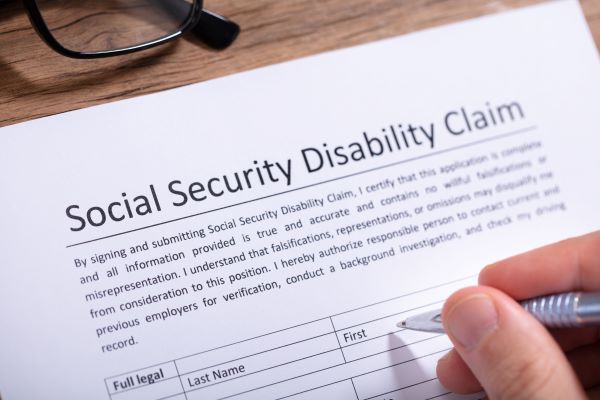The Social Security Administration (SSA) has officially released its annual cost-of-living adjustment (COLA) figures for 2025.

If Disability Worsens, Does the Government Increase Benefits?
If your disability worsens, you won’t see an increase in your SSDI or SSI benefits. In the case of Social Security Disability Insurance (SSDI), benefits assessment is not related to your disability level but based on your earnings history. You have already been determined to be fully disabled; there is no other category than fully disabled.
An SSDI claim that receives approval would yield a disability benefit equal to your full retirement benefit if you could work until full retirement age. Your benefit amount comes from your existing work record before your disability. In approving your claim, the Social Security Administration (SSA) has already determined you to be fully disabled due to your injury or illness, which is expected to last twelve months or end in death. Even if your condition worsens, you have already been determined to be fully disabled.
The Medical Review Processes Can Reduce Benefits
Conversely, if your condition improves, you may lose SSDI benefits. Periodic reviews of SSDI recipients’ medical status by Social Security will determine if you still qualify as disabled. The SSA will pay for this medical exam or test and inquire if you have been working while receiving SSDI or SSI and the specifics of your earnings. The timing and frequency of disability reviews are dependent on your long-term prognosis category:
- Medical Improvement Expected – Your review will be six to 18 months after benefits began
- Medical Improvement Possible – Your review will typically occur every three years
- Medical Improvement Not Expected – Your review will generally occur every seven years or more
When you receive your initial SSA award notice for benefits, you will be advised when to expect your first review. If your disability improves to the point where regular work is achievable, your benefits will stop. The same is true for Supplemental Security Income (SSI), another Social Security program paying benefits to individuals with disabilities.
Other circumstances that can cause your benefits to cease are:
- You are not following a doctor-ordered treatment or regimen that can medically improve your condition
- Your application for disability benefits contains false information
- You will not cooperate with the examiner who investigates your case
- You can work because of job training received or advances in vocational technology or medical treatment
Your lifetime earnings history does not determine SSI benefit payments but is affected by the financial circumstances of your household and your current income. Therefore, your SSI benefit can change if your living situation or income improves. An SSI beneficiary under age 65 also experiences periodic medical reviews, like SSDI, to determine if you still qualify as disabled. Once you are over 65 years old, you may be eligible for SSI based on age rather than disability, and the medical reviews no longer apply.
Fast Track Claims for Quick Eligibility
The only instance when a worsening medical situation can affect your application for disability benefits is with SSA fast-track claims. Certain illnesses or disorders and the severity of your condition may hasten the process for a quick decision regarding benefits eligibility. To understand if your illness qualifies for fast-tracking, the Social Security Administration lists hundreds of disorders, illnesses, and medical and personal circumstances in a comprehensive Compassionate Allowances (CAL) document.
Combining SSI with SSDI
It is permissible and often beneficial to receive both SSDI and SSI benefits even though combining them is effectively capped by the SSI maximum. For instance, if your SSDI benefit is low due to a low-wage job or you only worked a short time before the onset of your disability, SSI can provide an additional income source until you can re-enter the workforce. Additionally, benefits for SSDI begin during the sixth month after the date the SSA determines you became disabled. This waiting period for SSDI benefits does not exist with SSI. Therefore you can draw a full SSI benefit during the SSDI benefit waiting period.
Claiming SSI and SSDI (concurrent benefits) can help with health care coverage. SSDI recipients will qualify for Medicare; however, in most cases, the coverage will not begin until you have received SSDI benefits for 24 months. In most states, SSI recipients automatically qualify for Medicaid, which can defray your health care costs while you wait for Medicare to begin. When Medicare begins, you may still be able to stay on Medicaid, which is advantageous since it covers some costs that Medicare does not.
What Will Increase Your Disability Benefits?
The Social Security Administration, nearly every year, announces a cost-of-living adjustment (COLA) based on the Consumer Price Index for Urban Wage Earners and Clerical Workers (CPI-W). The adjustment addresses the rising costs of necessary and common goods. Typically, these increases are nominal, ranging in the lower end of one to five percent. However, for 2022, the increase is 5.9 percent, the biggest increase since 1982. Ostensibly a COLA intends to ensure the purchasing power of Social Security Disability benefits does not erode due to inflation. Sadly with inflation running at 9.1 percent in June 2022, the COLA is not keeping pace, and benefit recipients are dealing with the fallout.
Disability benefits are complex to understand and highly individualized. Your situation is distinct from other recipients, and as such, how you choose to manage your benefits situation is unique. Retaining the services of a disability lawyer is crucial to understanding how much benefit you can receive and streamlining the application process for timely approval. While your disability benefits will never increase because your disability worsens, a COLA can relieve some of the ever-increasing cost of living. We hope you found this article helpful. If you’d like to discuss your particular situation, please contact our New York office or call us at 607-271-9270.
